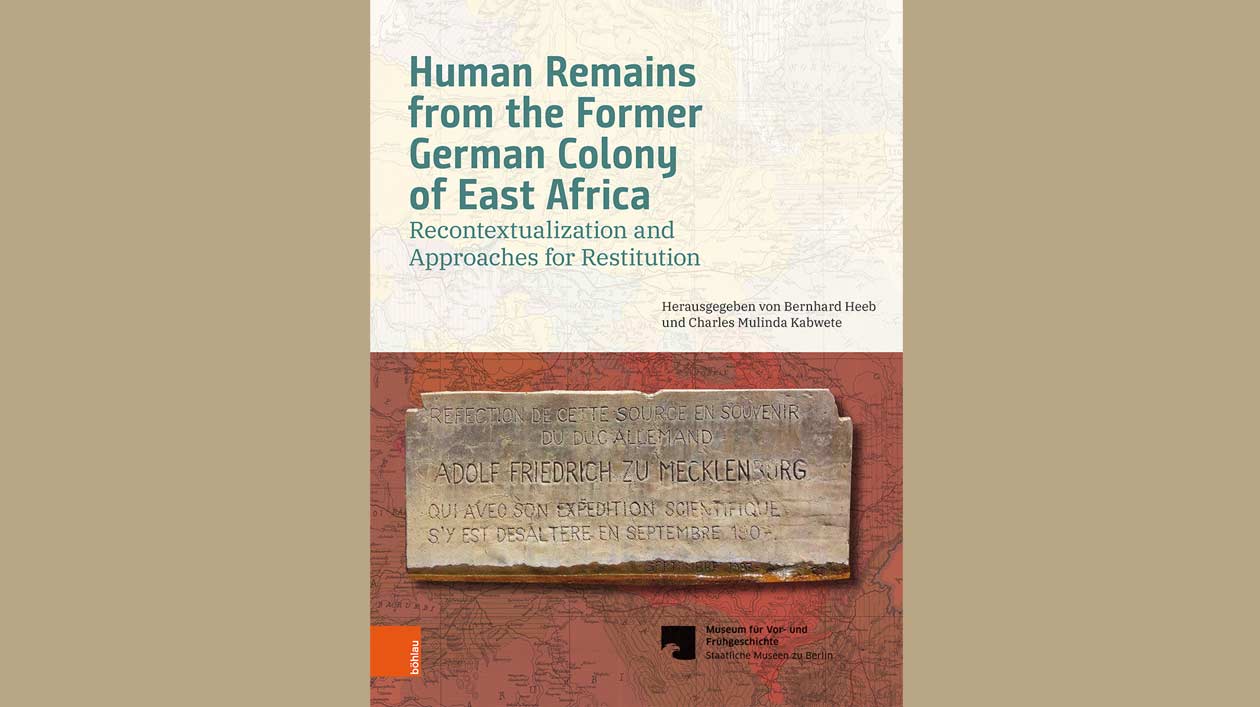New Publication: Results of the Provenance Research on Skulls from German East Africa
News from 01/18/2023
Following the completion of provenance research on skulls from German East Africa, an extensive report on the pilot project has now been published. “We are prepared to restitute these remains immediately, and we are waiting for signals from the countries of origin,” says SPK President Hermann Parzinger.

In a project launched in 2017, the Museum für Vor- und Frühgeschichte (Museum of Prehistory and Early History) of the Staatliche Museen zu Berlin (National Museums in Berlin) and researchers from Rwanda studied the provenance of approximately 1,100 skulls from the former colony of German East Africa. The results of this pilot project, which received financial support from the Gerda Henkel Foundation, have now been published. The book Human Remains from the Former German Colony of East Africa, edited by Bernhard Heeb and Charles Mulinda Kabwete, provides the basis for a responsible restitution of these human remains to the countries of origin. Professor Charles Mulinda Kabwete is a historian at the University of Rwanda. Bernhard Heeb is collection manager at the Museum für Vor- und Frühgeschichte and as such was responsible for reviewing and assessing the anthropological collection.
SPK President Hermann Parzinger comments: “For the SPK, the clear objective of provenance research on these human remains is to return them to the countries of origin. We shared with them the results of the research over two years ago and, with the approval of the Foundation Board, we offered restitution. We are prepared to return these remains immediately, and we are now waiting for signals from the countries of origin. With the present publication, the results of the research are now accessible to the general public as well. I would like to thank the Gerda Henkel Foundation for providing vital support for the project, which allows us to make amends for a past injustice.”
For Additional Information
- Press Release (in German): „Ergebnisse der Provenienzforschung an Schädeln aus Deutsch-Ostafrika veröffentlicht“ (01/18/2023)
- SPK Guidlines for the Treatment of Human Remains
- SPKmagazin: "Rescued from Oblivion"
- Book Presentation on the Publisher's Website

